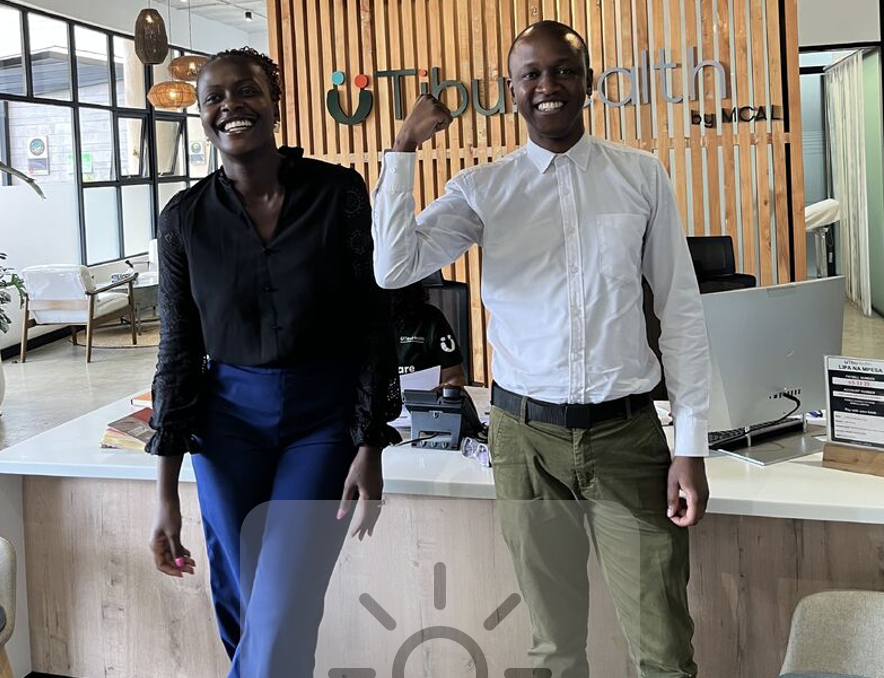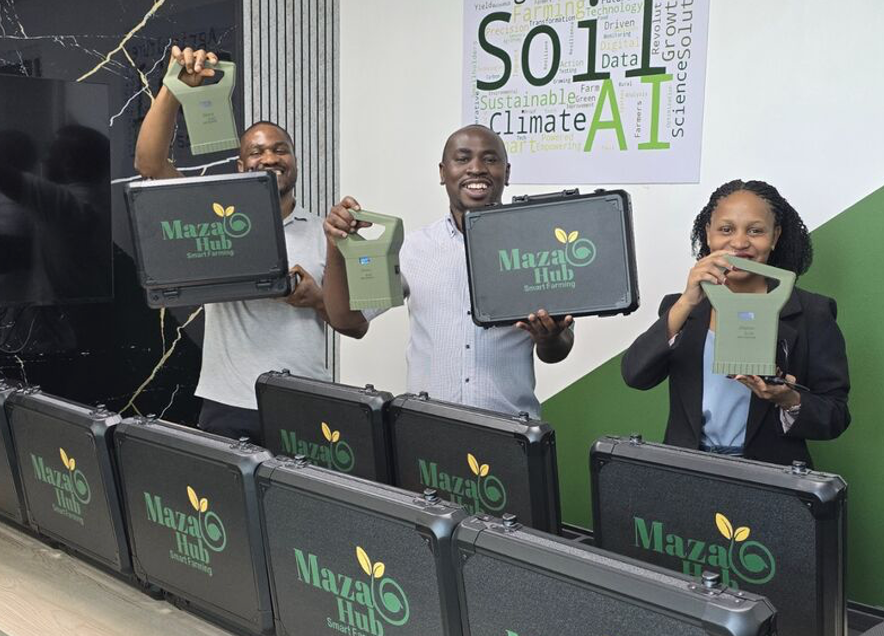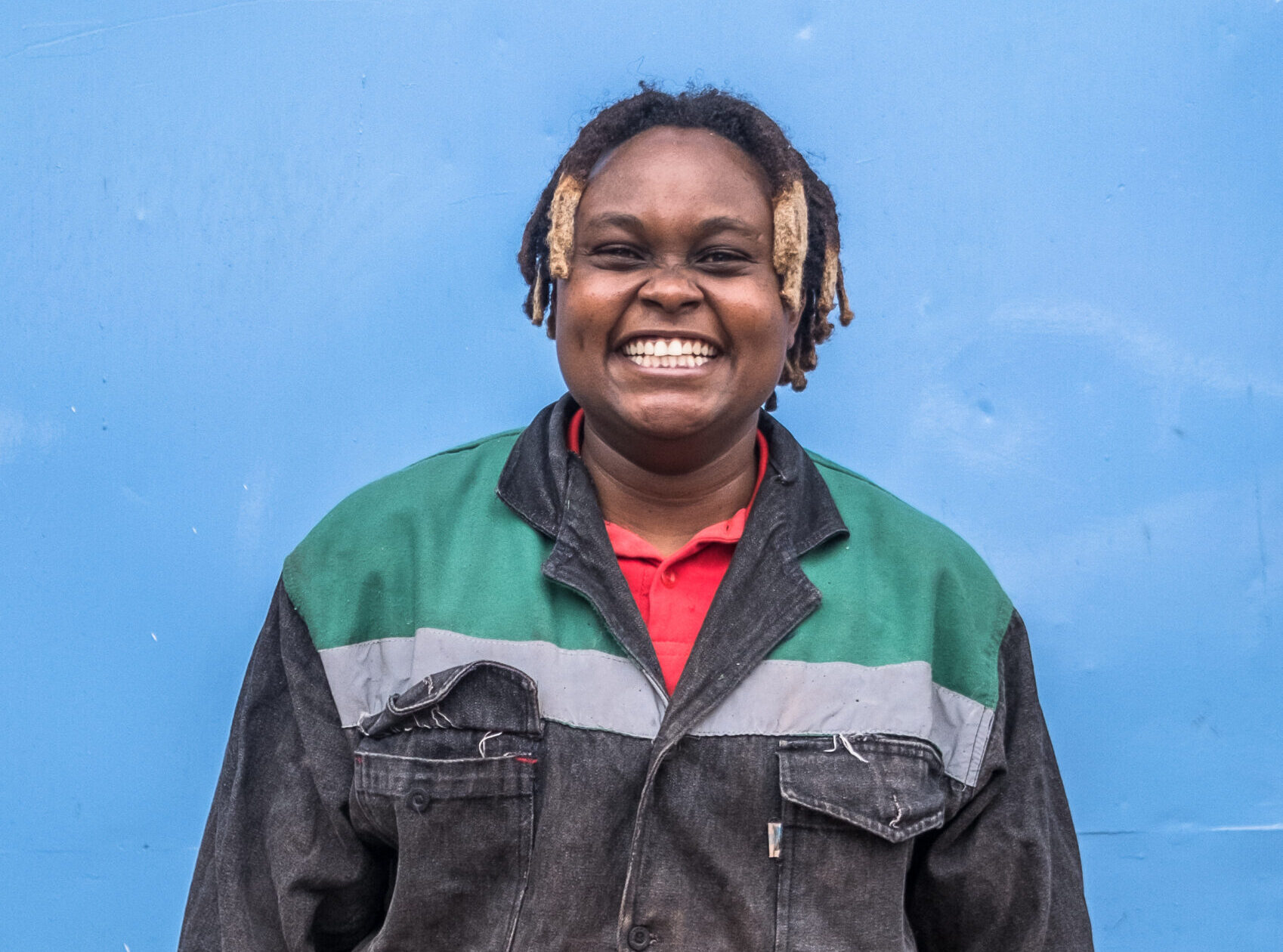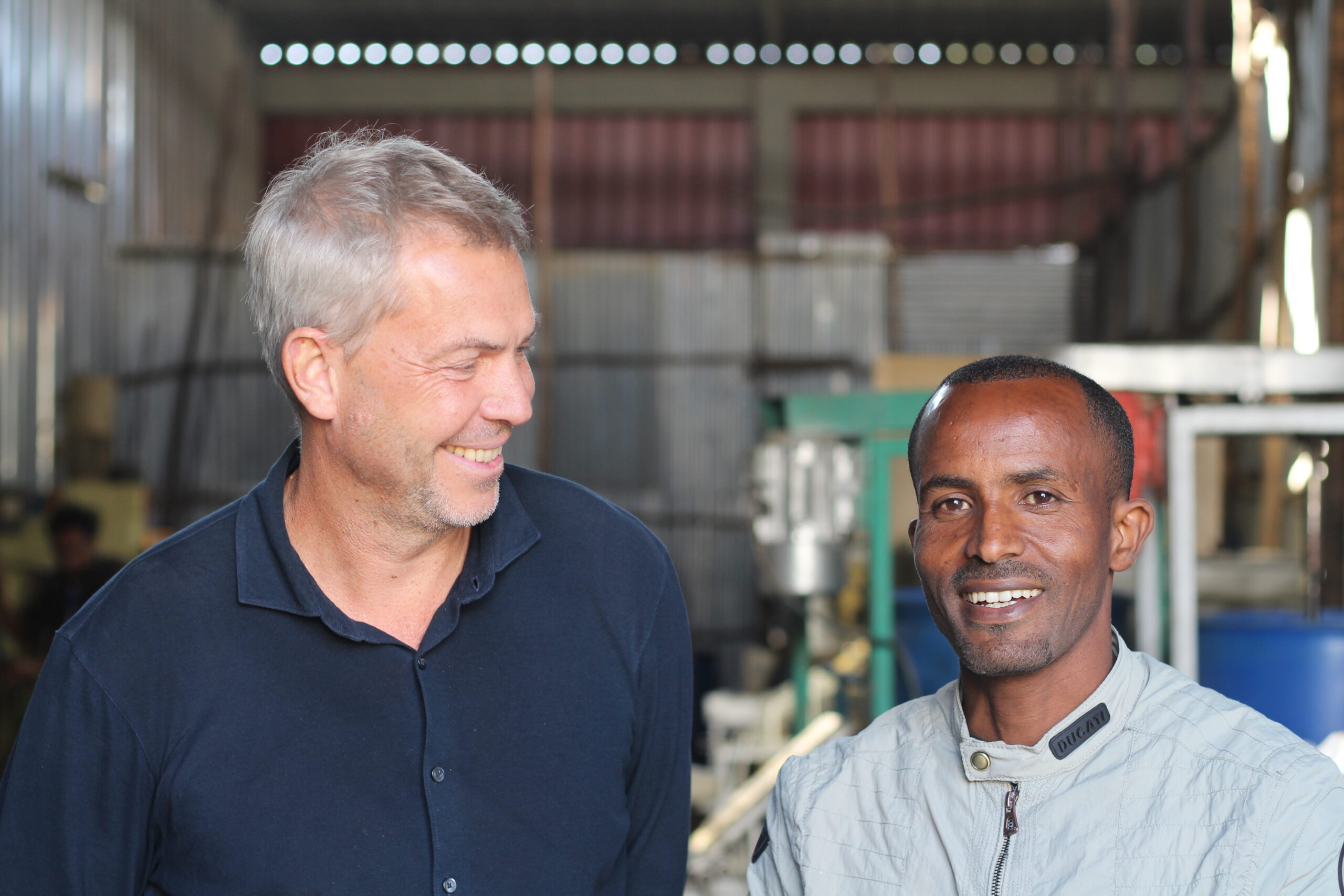Forget the summer lull. Things have been going well at Impacc in recent months, and we’ve gained both new investments and new partners.
It’s official: We’re further expanding our healthcare portfolio in East Africa and have added TIBU Health to our portfolio. This young company from Kenya is based on a simple insight: 60% of all sick people in many parts of Africa don’t go to a doctor, but first go to a pharmacy (because there aren’t many doctors, but pharmacies are almost everywhere). But you don’t always need a pill – often you need a medical diagnosis first. Therefore, the team led by CEO Karl Daniel and COO Alice Oduor has developed a shop-in-shop system called “Minute Clinics ,” which rents space in pharmacies and offers primary medical care. Patients gain access to healthcare services, the pharmacies receive prescriptions and more customers, and TIBU has found an expansion model that can be scaled easily and inexpensively . Demand is high: Tibu Health has signed agreements with hundreds of pharmacies, and expansion was simply a question of money – which so often is the bottleneck on the African continent. I’m thrilled that TIBU has accepted us as a partner, and we can’t wait to help them spread their solution in Kenya and East Africa. Because healthcare not only creates jobs, it also saves lives.

TIBU Health COO Alice Oduor and CEO Karl Daniel.
We also welcome MazaoHub to our portfolio, an exciting agricultural startup from Tanzania. We’ve finally gained a foothold in a country that’s very dear to my heart: Twenty years ago, I spent a few wonderful months living in a township at the foot of Mount Kilimanjaro, helping women with AIDS set up small businesses. I didn’t know it at the time, but my experiences in northern Tanzania laid the foundation for what would later become Impacc.
MazaoHub’s CEO Geophrey Tenganamba and his team want to improve soils in Africa. As every farmer knows (and even hobby farmers like me), a good harvest starts with healthy soil. Unfortunately, poor farming practices in Tanzania lead to yield losses of up to 50%. Mazaohub produces soil testing kits. They offer the testing as a service through their own sales stations, which then also provide the right fertilizers and suitable seeds, aggregate the harvest, and thus help the farmers get good prices. Because MazaoHub is involved in every step, they receive a small commission at each step, which smallholder farmers can afford. And it’s working: MazaoHub is growing like a weed (I couldn’t resist that one), they already serve more than 50,000 smallholder farmers, and they expect to double their business again this year.
I’m delighted that MazaoHub has accepted Impacc as an investor and partner to produce more soil testing kits and expand into new regions—and help countless smallholder farmers increase their yields and earn more money. Most of the world’s poor are farmers. Companies like MazaoHub are ensuring this doesn’t stay that way. Is there a better business model?

MazaoHubs Test kits before use.
Joining forces for greater impact and even more jobs
The question remains: where does all the investment money actually come from? (A quick digression: our donors don’t get a return, but rather a donation receipt, because Impacc is a non-profit organization. Everything our startups pay back upon exit goes directly to the next startup. Not a cent goes back to us or our donors. We call this reinvesting impact. And that turns a donation into a chain of impact.)
The good news: the money inflow is keeping pace with our portfolio growth. I’m particularly pleased (and also a little proud) about two partnerships: Deichmann, Europe’s largest shoe retailer, has agreed to support MazaoHub, which secures the financing of this investment. Even while Impacc is not a religious organization: as the grandson of a pastor, I’m delighted that a deeply Christian entrepreneur like Heinrich Deichmann has placed his trust in us.
SOS Children’s Villages worldwide, which we signed last month, is the second big partnership I am so happy about. At first unexpected, such a deal with an established aid organization makes a lot of sense: SOS is very good at giving children from difficult backgrounds a loving home – and helping them take control of their own future . But at some point the children leave school and need a job. Impacc can then take over and create jobs in precisely the areas where SOS is active. When I first met SOS Managing Director Lanna Idriss , I knew that we think alike, and this was only confirmed by her visit to Nairobi a few months ago. Now the time has finally come: we are launching a joint pilot that will give Impacc money for investments, it will give SOS impact through the jobs created, and both of us the opportunity to reach new supporters with new stories through new channels. If there ever was a match made in heaven, this may well be it.

With SOS CEO Lanna Idriss visiting our portfolio company Malaica.
And last but not least, a brief outlook: we have developed a Global Jobs Index together with the Kiel Institute for the World Economy, which we will present in the fall. The fact that one of Germany’s top research institutes that has been dubbed “Germany’s most influential economic think tank” is joining forces with us is newsworthy in itself, I think. The fact that we are now, for the first time, answering the question of how many jobs the world needs – per country and per year up to 2060 – is even more so. The index is almost complete – I’ll report on it soon.




